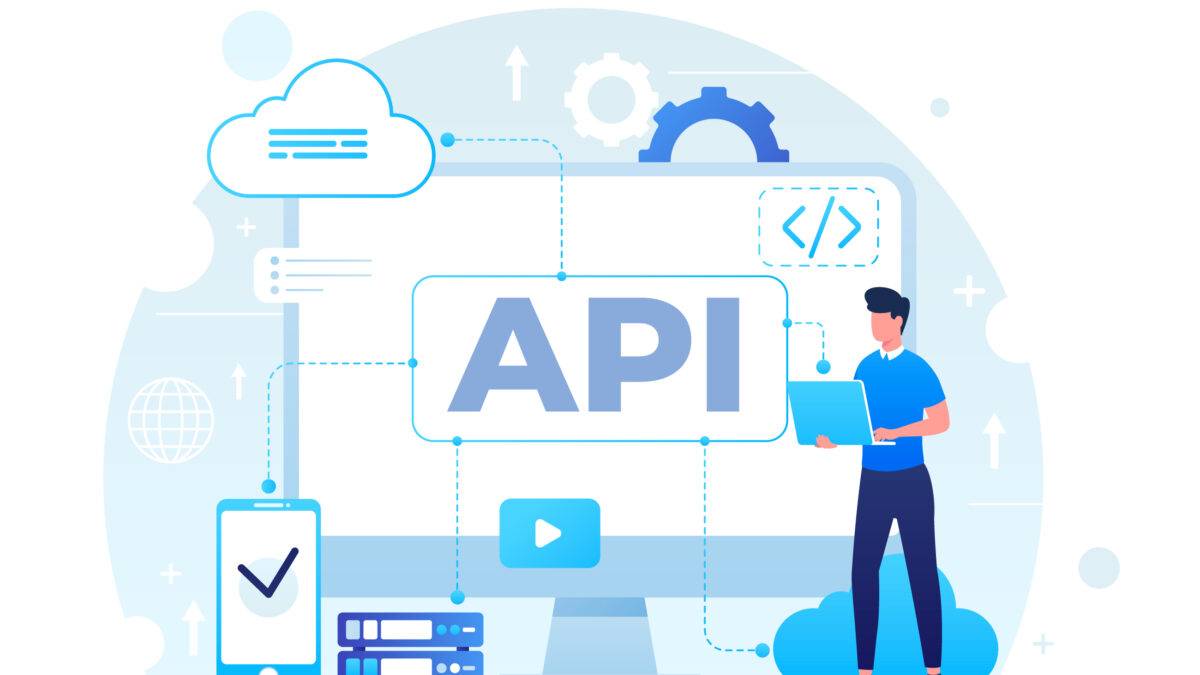
New technologies and regulations are shaping the landscape of drug development and manufacturing leading to continuous evolution in pharmaceutical industry. Active Pharmaceutical Ingredients(APIs) production is one of the critical aspects of drug manufacturing. A wide range of players are involved in the production and distribution of APIs making the Pharma API manufacturing market, a complex and highly regulated sector.
Unveiling the role of API in Pharmaceuticals: Beyond the Basics
Active Pharmaceutical Ingredients abbreviated as API stand as the cornerstone of every medicinal formulation in the intricate realm of pharmaceuticals. These are the chemical-based compounds that are mainly manufactured in the countries the USA, Europe, China, and India. APIs have pharmacological activity which is mainly used in conjunction with other ingredients to diagnose, cure, mitigate, and treat the disease. However, many medicinal-based corporations have started importing the active ingredients to their home countries form the countries which are manufacturing the API’s. The medicines are used by people to prevent, treat, diagnose, and cure disease in recent times. A single medication comprises of two main components, i.e., the API, and other component known as excipients.
The API is the major component which is chemically and biologically active that has to do the work in your body. The excipients like lactose or mineral oil in the pill are chemically inactive providing volume, a sweet flavor, or a colour. They help in the delivery of APIs in the body system. Multi-step reaction involving numerous chemical compounds and raw materials are utilized in to make an API. However, they treat the disease by acting on the targeted cells directly in combination with the excipients. It has been estimated that all over the globe nearly more than 1 lakh tones of pharmaceutical products are consumed (e.g., 24% of the consumption of medicinal products are covered by Europe alone). The generation of these APIs lead to the spreading of pollution as they release chemicals in the environment. Therefore, an immediate alteration in the policies and regulations needs worldwide attention.
Factors affecting the growth of API market in Pharmaceutical Industry
The growth of the Pharma API companies in India and abroad has been regulated by several factors such as the expansion of the pharmaceutical industry in emerging markets, the increasing demand for generic drugs and the emergence of new diseases and treatments. Additionally, further investments in API manufacturing have been driven by the COVID-19 pandemic that has highlighted the importance of a robust and agile pharmaceutical supply chain.
Advances in biotechnology also offers the potential for the development of new therapies and treatments. The use of living cells and organisms in biotechnology to produce APIs, allows for greater precision and control over the manufacturing process. Thus, it has become another key reason for growth in the pharma API market.
Continuous manufacturing is another area in technological advancement in API manufacturing. It allows for the continuous production of APIs, as opposed to the traditional batch manufacturing process, resulting in increased efficiency, reduced costs, and greater control over the manufacturing process.
Automation and robotics, artificial intelligence, and machine learning are other technological advancements in API manufacturing in addition to biotechnology and continuous manufacturing. These technologies can enhance quality control and regulatory compliance by improving the speed, accuracy, and efficiency of the manufacturing process.
Key insights into the pharmaceutical API manufacturing market:
Regulatory Compliance: Various international bodies such as the FDA, EMA, and WHO strictly regulate the production of APIs. It is crucial to be compliant with these regulations for ensuring the safety and efficacy of the drugs produced. Significant financial and reputational damage to pharmaceutical companies can happen if they fail to comply with regulations.
Outsourcing: API manufacturing is outsourced to specialized contract manufacturing organizations (CMOs) by many pharmaceutical companies to save cost and increase efficiency. While leveraging the expertise and resources of specialized CMOs, outsourcing allows companies to focus on drug development.
Emerging Markets: The API manufacturing market is expanding rapidly in emerging markets such as India and China due to lower labour costs and a growing middle class with increased demand for pharmaceuticals. However, concerns about quality control and regulatory compliance in these markets remain a challenge for global pharmaceutical companies.
Technology Advances: The advanced technologies such as biotechnology and continuous manufacturing allow for faster and more efficient production processes, changing the API manufacturing landscape. They also offer the potential for greater control over the quality and consistency of APIs.
Sustainability: There is an increasing focus on sustainability and reducing the environmental footprint of API. This is done by reducing waste and energy consumption in API manufacturing processes by the development of greener technologies and materials.
Overall, careful monitoring of regulatory compliance, outsourcing strategies, technology advances, emerging markets and sustainability initiatives are required in the pharmaceutical API manufacturing market. Pharma API companies that can successfully navigate these challenges are likely to thrive in this evolving market.
API Manufacturing Industry: Precision and Compliance
Let’s explore the cutting-edge strategies that pharmaceutical companies are using to optimize API manufacturing, from innovative processes to advanced technologies.
1. Understanding the Importance of API Manufacturing
APIs are the heart of any pharmaceutical formulation. They are the key components responsible for the therapeutic effects of a drug. Therefore, the quality and safety of pharmaceutical products are directly impacted by the efficiency and precision of API manufacturing. By focusing on API manufacturing optimization, pharmaceutical companies can ensure the consistent production of high-quality drugs while reducing costs. API manufacturing was often viewed as a straightforward process in the past. However, the importance of optimizing API manufacturing cannot be overstated with the increasing complexity of drugs and the need for tailored therapies. A deep understanding of chemical processes is required to understand the intricacy of modern pharmaceuticals, and this is where cutting-edge strategies come into play.
2. Advanced Process Technologies
Adoption of advanced process technologies is one of the primary strategies for optimizing API manufacturing. This involves using of continuous manufacturing, allowing for a more streamlined and efficient production process.
3. Quality by Design (QbD) Approach
It is another cutting-edge strategy in API manufacturing. QbD ensures that quality is built into the product from the beginning by emphasizing the systematic development of processes. Pharmaceutical companies can achieve better control over API production by designing the manufacturing process with a focus on quality, reducing the likelihood of deviations and improving overall product consistency. QbD helps in the development of a robust process that minimizes variability is a comprehensive approach that involves the identification of critical process parameters and the development of a robust process that minimizes variability. Pharmaceutical companies can optimize API manufacturing to consistently produce high-quality APIs by systematically understanding the factors that can impact the quality of the final product.
4. Automation and Data Integration
A vital role is played by Automation and data integration in optimizing API manufacturing. Automated systems enhance the precision and speed of the manufacturing process by reducing the risk of human error. Moreover, the valuable data generated by these systems can lead to more efficient API production by real-time monitoring and process improvement.
Precision and consistency are paramount in the world of API manufacturing. Automated systems can manage various aspects of the manufacturing process, from mixing and reaction monitoring to product analysis and packaging. Thus, it provides the necessary level of control and accuracy, reducing the chances of errors but also allows for a more efficient use of resources.
The data generated by automated systems provides valuable insights into the manufacturing process, allowing for real-time adjustments and fine-tuning. Pharmaceutical companies are enabled to identify trends, detect deviations, and continuously improve the manufacturing process by integration of data from various stages of production.
5. Collaboration and Knowledge Sharing
Collaboration and knowledge sharing are indispensable in the fast-paced world of pharmaceuticals. Progressive partnership of companies with research institutions, other pharmaceutical companies, and technology providers leverages collective expertise. Sharing insights and innovations can also lead to more effective strategies for API manufacturing optimization.
The driving force behind innovation in API manufacturing is collaboration. A multidisciplinary approach involving partnering with experts in various fields is required by modern complex medicine so that the pharmaceutical companies can access a broader pool of knowledge and experience.
Successful collaboration between pharmaceutical companies and academic institutions is one such example. Ground-breaking research through these collaborations often result in the development of novel manufacturing techniques. Additionally, adoption of cutting-edge equipment and processes that enhance API manufacturing efficiency can be done by partnerships with technology providers.
Take Away
Optimizing API manufacturing is a dynamic journey not a static goal. Pharmaceutical companies can navigate the evolving landscape of pharmaceuticals and continue to deliver innovative and life-saving drugs to the world by adopting these cutting-edge strategies. The pharmaceutical industry will undoubtedly face new challenges as technology advances and regulatory standards evolve, but it is well-equipped to meet them head-on with the knowledge and strategies discussed in this blog.



